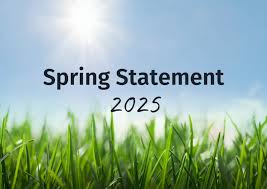How much thought have you put into planning out your retirement years?
Your employees will automatically be enrolled into a workplace pension scheme. But for directors, partners and sole traders, there’s no mandatory requirement for you to set up your own pension scheme. When it comes to planning your pension, the buck stops with you.
Let’s take a look at some of the main questions you’re likely to have about your retirement planning, with some straightforward answers to get you moving in the right direction.
Why do you need a good personal pension strategy?
In the current economic climate, it’s important to make sure that you have a good pension scheme in place. With a pension behind you, you’ll be able to retire and live out your plans for later life, without having any unnecessary worries about your finances.
So, how should your pension work?
- You’ll make regular monthly contributions into your plan. This money will then be invested over time to (hopefully) create a bigger pot of money for retirement.
- When you reach retirement age, you’ll have a lump sum of money in your pension. It’s your decision what you then do with this money. You can:
- Take all or some of it as cash. The first 25% is tax-free.
- Buy a product that gives you a guaranteed income (sometimes known as an ‘annuity’) for the rest of your life
- Invest the money in a fund to get a regular, adjustable income (sometimes known as ‘flexi-access drawdown’).
Should you choose a workplace pension or a personal pension plan?
If you don’t have any automatic pension provision, you have two main choices:
- Workplace pension – with a workplace pension, you don’t have to worry about choosing the right investment plan or making regular contributions. You just enrol in the company scheme and that side is all taken care of for you.
- Personal pension – with a personal pension plan, you can choose the type of investments that best suit your needs and goals. You also have the option of withdrawing from the scheme at any time without incurring any penalties.
What should you consider when choosing a pension plan?
Choosing the personal pension scheme route does give you more options. But there are a few key questions you need to think about before making any decisions on a provider.
For example:
- How big will your contributions need to be? Your pension pot needs to supply enough money to help you maintain your desired lifestyle in retirement. That means making monthly contributions that are big enough to generate a suitable lump sum – a sum that will then provide you with the income you need for the rest of your life.
- What are the rules about withdrawing your money? Most pension schemes won’t let you draw on your funds until you’ve reached a certain age – usually 55 years old. Make sure you’ve read the small print and know when you can (and can’t) access your money.
- How are your investments managed? Pension providers will usually provide regular updates on your investment performance. But make sure you know how your funds are being managed, and what areas your money is being invested in. You may want to avoid certain investment areas that don’t align with your own personal values.
Could your pension be part of your tax planning?
Putting cash into your pension plan makes good financial sense at any point. But pension contributions are also a useful tool when it comes to your tax planning too.
Any money you pay into your personal pension scheme will be liable for tax relief. Because of this, you get the double whammy of saving for your future, while also cutting your overall tax liability for personal income tax.
Do you need an independent financial adviser?
If you need advice to help you choose the right pension scheme, provider and investments, you should speak to an independent financial adviser (IFA).
An accountant can help with your tax planning questions, but only an IFA or a certified pensions specialist can give you professional advice on your pension choice.
Talk to us about finding the best pensions advice
As your accountant, we can help you look at the tax implications of contributing to a pensions scheme.
We can also introduce you to the best IFAs and pensions advisers, so you have solid independent advice on which to base your decisions.



